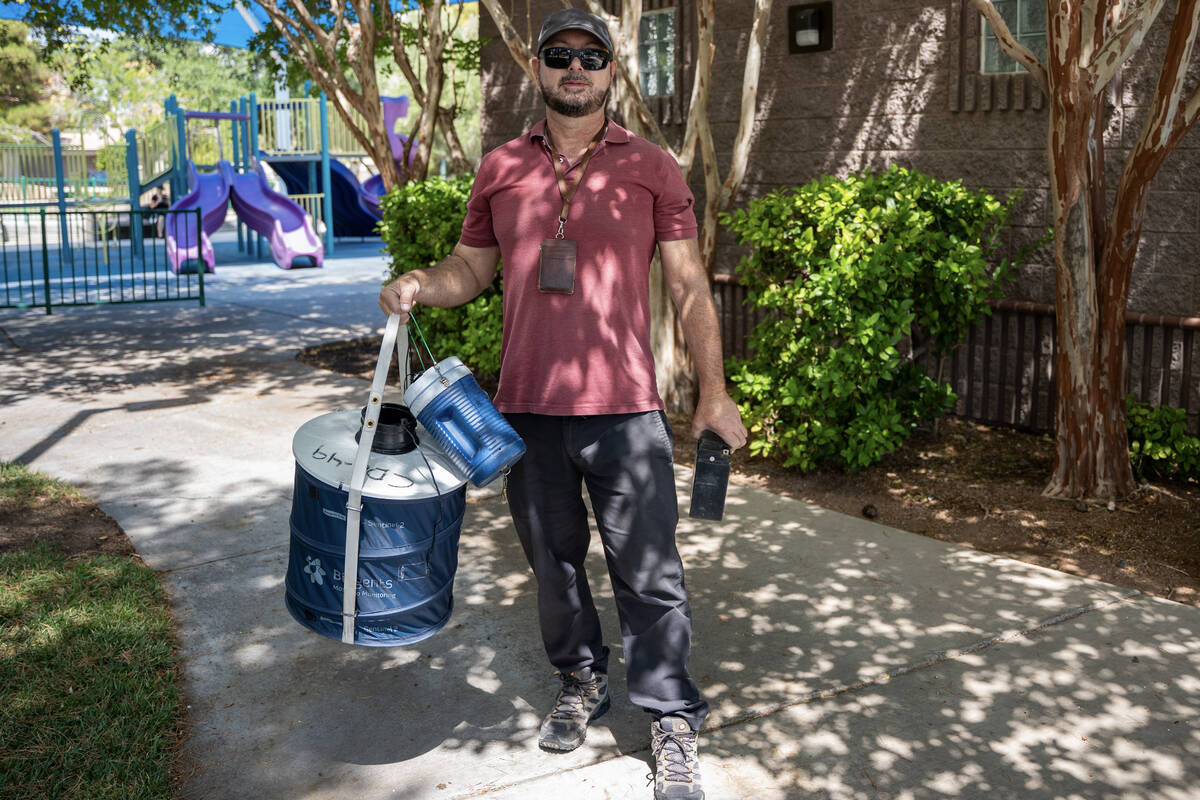
Mosquitoes Thrive in Las Vegas, Developing Resistance to Pesticides
While some insects struggle to survive the intense summer heat of Las Vegas, mosquitoes are not only surviving but thriving, and alarmingly, developing immunity to common pesticides. This growing resistance poses a significant challenge to public health efforts aimed at controlling mosquito populations and preventing the spread of diseases.
Researchers are observing that standard mosquito control methods are becoming less effective in certain areas of the Las Vegas Valley. Specifically, areas around golf courses in Summerlin and Henderson, where pesticide use is prevalent, are seeing mosquitoes that can survive even high concentrations of insecticides.
One potential explanation is that mosquito populations are rapidly evolving to resist the effects of pesticides. This means that a new generation of mosquitoes can quickly develop immunity to chemicals designed to kill them. The frequent use of pesticides in areas with stagnant water, such as golf course water hazards and decorative water installations, creates an environment where resistant mosquitoes thrive.
Mosquito Season and Public Health Concerns
Clark County is currently in the midst of mosquito season. Public health authorities, including the Southern Nevada Health District and Clark County Vector Control, are actively monitoring mosquito populations for the presence of diseases. This monitoring is especially crucial following unusually high mosquito activity earlier this year.
Despite ongoing monitoring efforts, health officials emphasize that the mosquito problem is unlikely to resolve itself without a coordinated, community-wide approach to mosquito control. The lack of such a unified strategy allows mosquito populations to persist and even flourish.
Even a single untreated swimming pool or stagnant water source can contribute to the problem. Mosquitoes breeding in these uncontrolled environments can then spread throughout the community, undermining individual efforts to reduce mosquito populations.
While no arboviruses, such as West Nile virus, have been detected in mosquito samples as of mid-July, health officials caution that the risk remains until the end of mosquito season in late October. The potential for disease transmission increases during August and September, highlighting the need for continued vigilance and preventative measures.
Two Mosquito Species of Concern
Two mosquito species are of particular concern to environmental and public health experts in the Las Vegas Valley:
Culex quinquefasciatus: This is the most common mosquito species in Southern Nevada. It thrives in damp environments like the Clark County Wetlands Park and is a known vector for West Nile virus. The disease was first detected in the valley in 2004, and last year, 26 human cases were reported.
Aedes aegypti: This aggressive and resilient species was first discovered in the valley in 2017. Bites from Aedes aegypti tend to cause more severe skin reactions than those from other mosquito species. More importantly, this species can transmit viruses that cause dengue fever, chikungunya, yellow fever, and Zika. While these diseases have not yet been found in local mosquito populations, the high volume of international visitors to Las Vegas increases the risk of introduction.
The Aedes aegypti population has grown significantly in recent years. In 2017, it was found in only four ZIP codes in Clark County. By last year, it had spread to 57 ZIP codes. Projections suggest that this species could be present in as many as 75 ZIP codes by 2030.
Mosquito population sizes fluctuate from year to year, influenced by weather patterns. For example, the number of ZIP codes with Aedes aegypti spiked in 2023 after Hurricane Hilary brought increased rainfall to the valley. Periods of intense heat and drought, however, can lead to a decrease in mosquito populations.
Preventing Mosquito Bites
Residents can take several steps to protect themselves from mosquito bites:
- Use insect repellent.
- Wear clothing that covers arms and legs.
- Eliminate standing water around your property. This includes emptying containers such as flower pots, buckets, and tires.
- Install or repair screens on windows and doors.
While mosquitoes are a persistent presence in Las Vegas, individuals can take proactive measures to reduce their exposure and prevent bites.
Urbanization and Mosquito Habitats
Rapid urbanization in Las Vegas is contributing to the growth of mosquito populations. Mosquitoes can breed in very small amounts of water, and as more land is developed into pools, ponds, and other water features, the number of potential breeding sites increases. This means that as Las Vegas grows, it inadvertently creates more favorable habitats for mosquitoes.
The Need for Coordinated Abatement Efforts
Unlike many other metropolitan areas in the Western United States, Clark County lacks a region-wide mosquito abatement program. This leaves mosquito suppression efforts to individual municipalities.
Clark County Vector Control focuses on mosquito abatement in public spaces and infrastructure, such as washes and storm drains, using mosquito-eating fish and insecticides. However, the division does not provide abatement services to homeowners on private property, except for educational outreach.
The establishment of a county-wide mosquito abatement district has been met with skepticism from local governments, primarily due to concerns about cost and necessity.


No comments:
Post a Comment